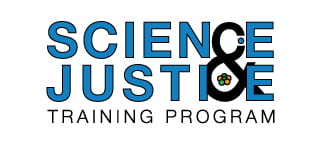Started in 2010 with a grant from the National Science Foundation, the Science & Justice Training Program (SJTP) celebrates its 10th anniversary and welcomes a new cohort!
Now more than ever the SJTP provides critical skills for addressing problems of our times, whether ecological destruction, growing inequalities, or a global pandemic. These are problems that span disciplines and areas of practice, and the SJTP provides the space for transdisciplinary thought and collaboration needed to respond to them. It is creating the next generation of path-breaking researchers who have the tools needed to place justice at the heart of our best science and technology. Read about their innovations as reported in the Danish Daily Information and Le Monde.
Offered Winter 2020 as BME/FMST/SOCY 268A and ANTH 267A, the Science & Justice: Experiments in Collaboration, the introductory seminar of the SJTP brought early career science and engineering students together with social science, humanities and arts students to foster experimental collaborative research practices.
We are proud to welcome the newest cohort of graduate students to the SJTP as Fellows this Spring 2020, joining us for our 10th anniversary, are Colette Felton, Jonas Oppenheimer, and Jennifer Pensky! Learn more about them below.
In addition to working with SJRC affiliated faculty, Fellows connect with SJRC’s network of local, regional, and international partners to inform projects that explore how questions of science and knowledge meet questions of ethics and justice. Fellows gain access to funding for projects and events, mentorship and training, and experience designing innovative collaborative transdisciplinary research and public dialogues.
MEET the FELLOWS
Colette Felton is a first-year member of Professor Angela Brooks’ Lab in Biomolecular Engineering and Bioinformatics. Colette is working on analyzing long-read transcriptomics, especially in identifying and visualizing gene fusions. Colette’s SJTP project is focused on improving the accessibility of scientific research to students from marginalized backgrounds.
Jonas Oppenheimer is a second-year member of the paleogenomics lab with Beth Shapiro in Biomolecular Engineering and Bioinformatics. Jonas works to understand the evolutionary dynamics of Beringian megafauna through ancient DNA, investigating the consequences of climate, population history, and hybridization on these species. Jonas is also a Fellow with CITL (Center for Innovations in Teaching and Learning) learning pedagogical techniques to make an education in science accessible to all.
Jenny Pensky is a third-year member of Professor Andrew Fisher’s hydrogeology lab in Earth & Planetary Sciences. Jenny focuses on how managed aquifer recharge (MAR) can be used to improve both water supply and quality. For their SJTP project, Jenny and Jonas will explore the relationships between “invasive” plants, botanical gardens, and colonialism.

